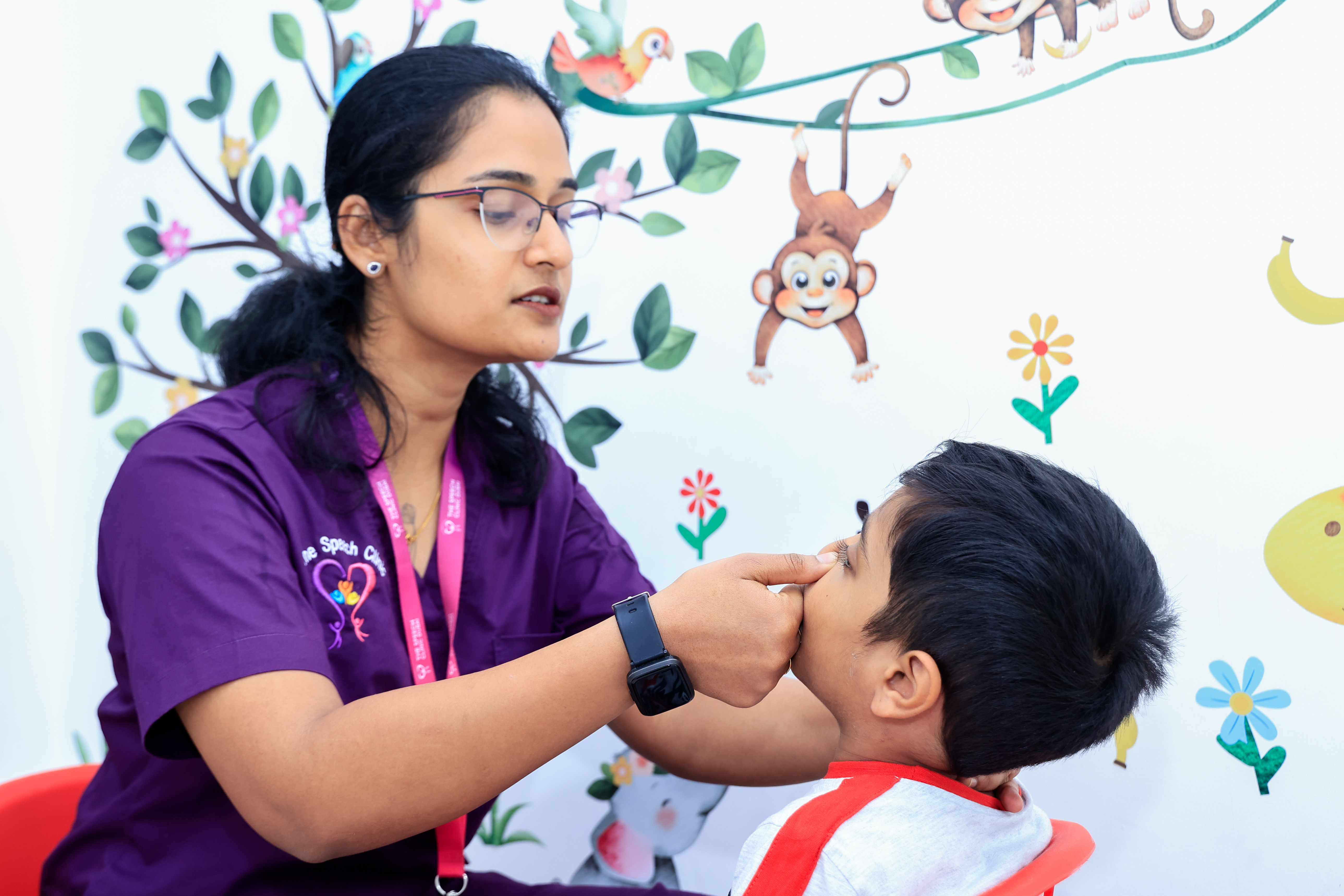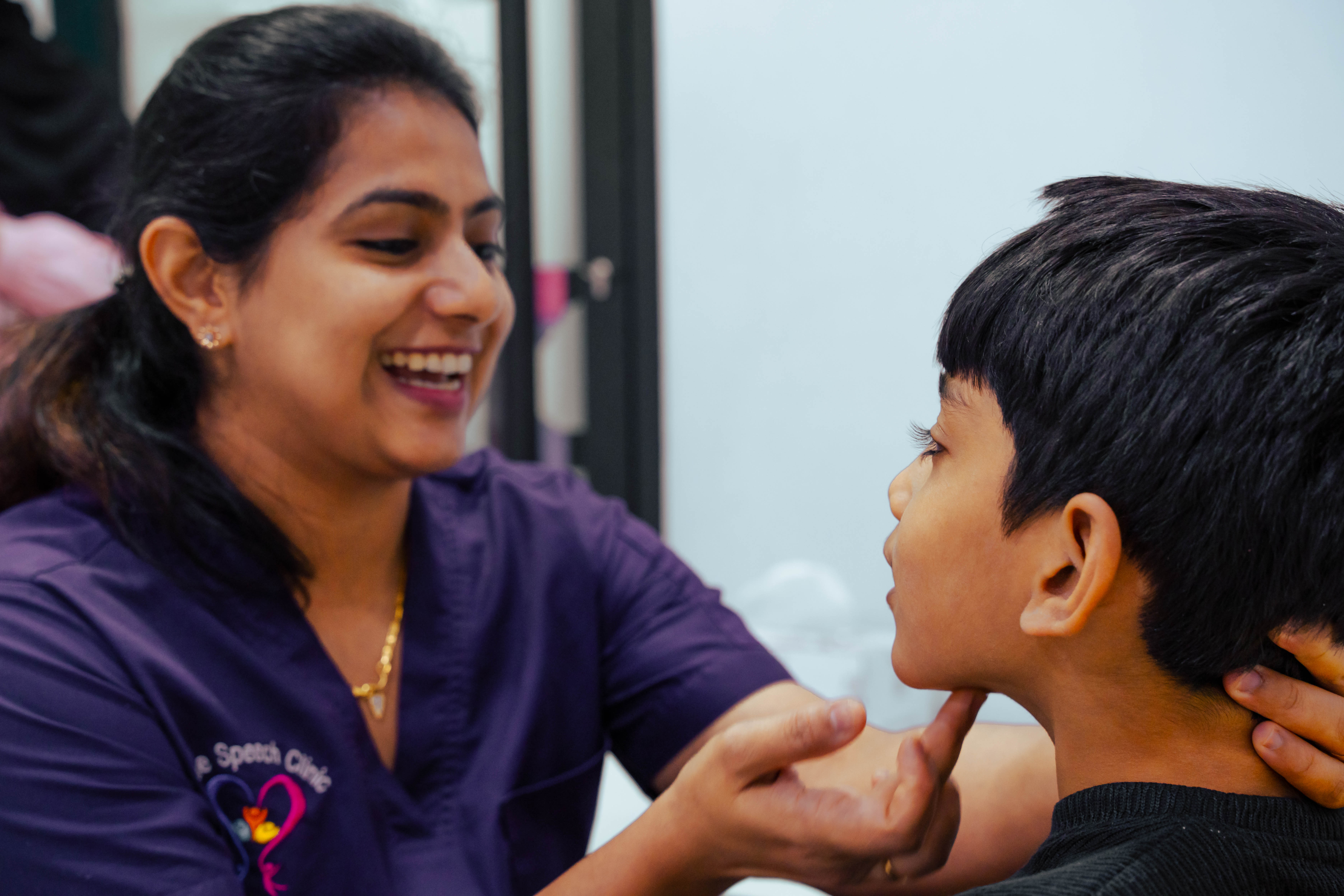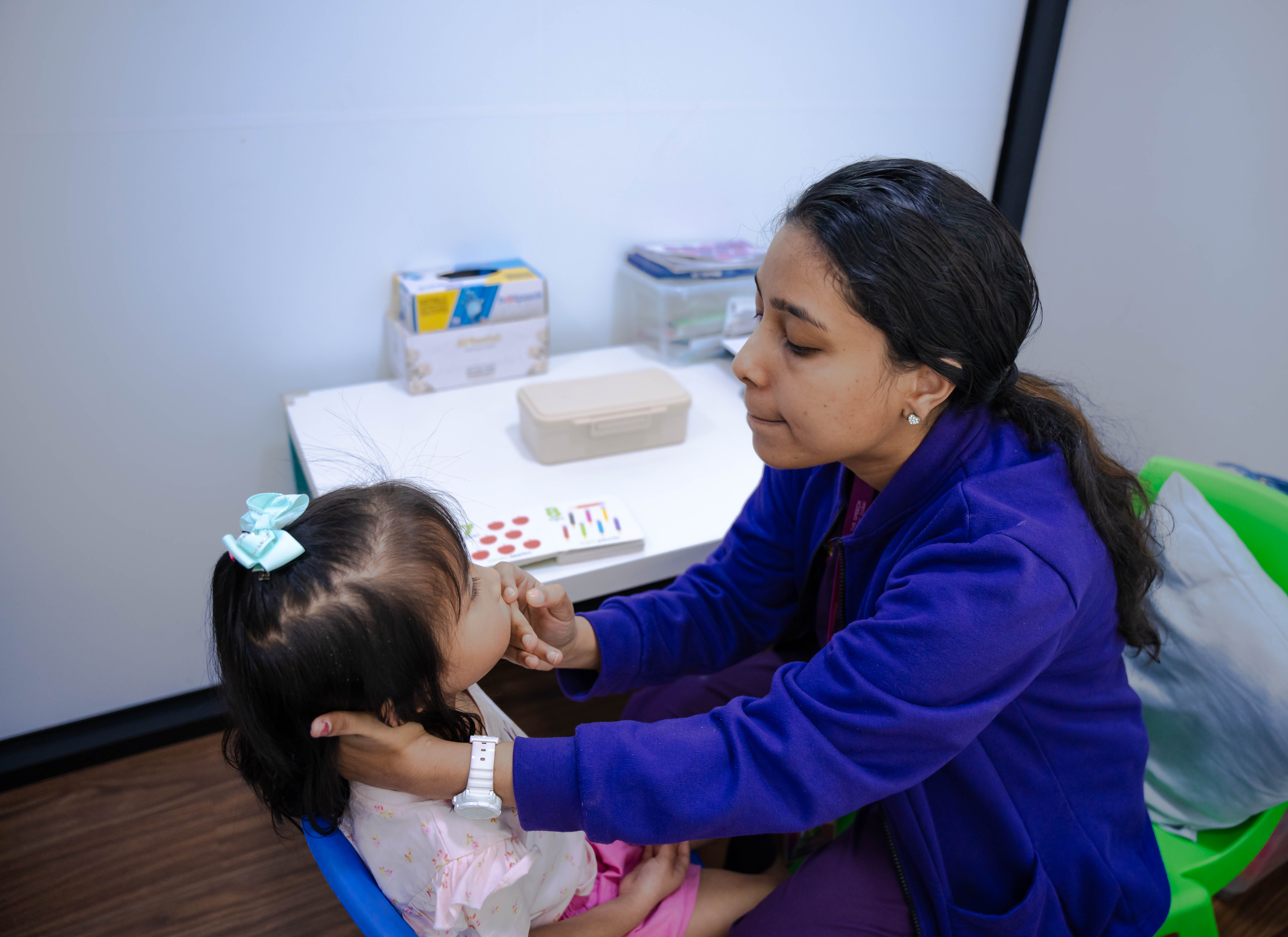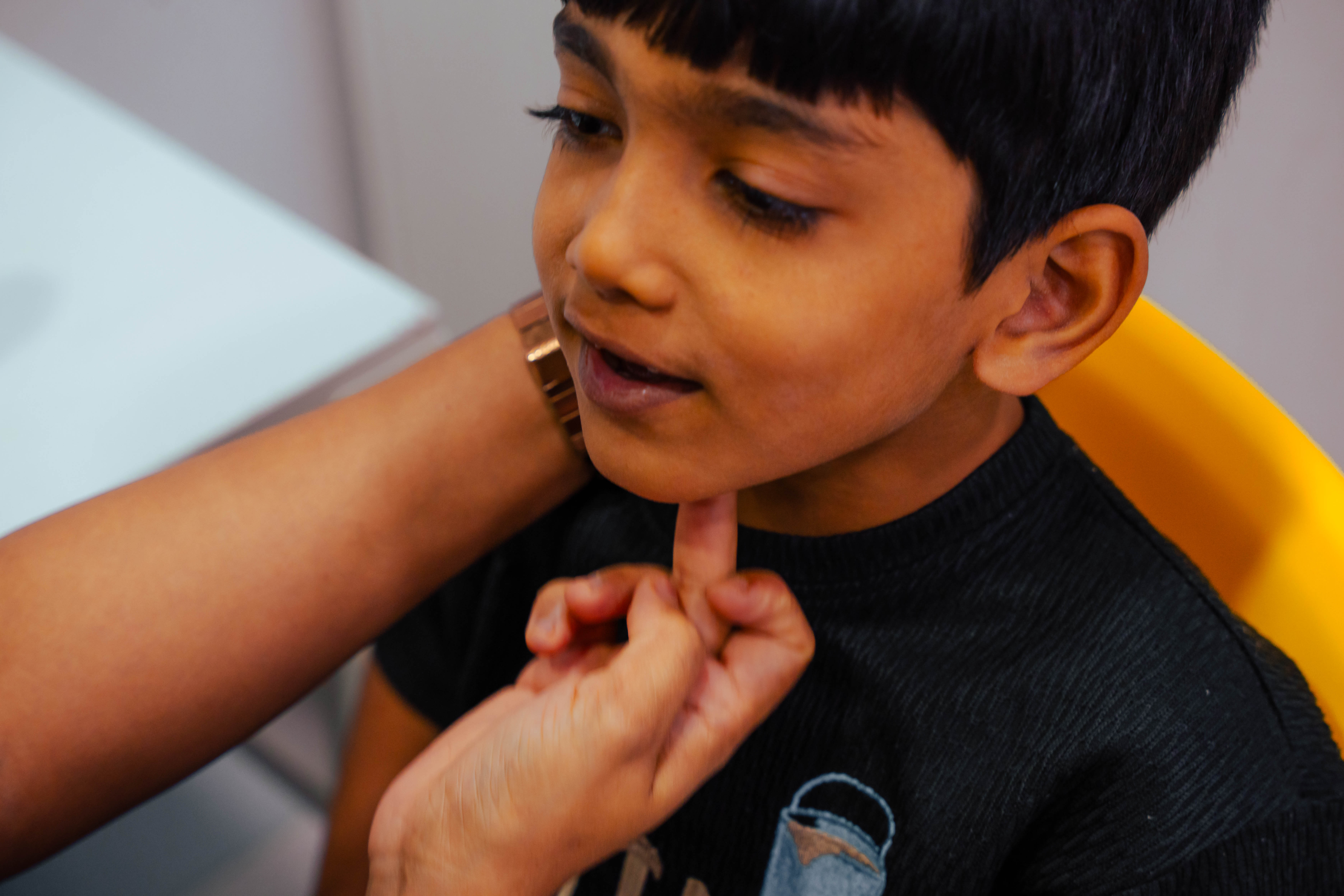PROMPT Therapy
PROMPT Therapy

PROMPT FOR RESTRUCTURING ORALMUSCULAR PHONETIC TARGETS is an evidence-based technique where oral structures are guided using clinician hands to produce sounds or words. It helps in refining oral movements to plan better speech production.




Prompt has become a valuable therapeutic approach in the speech clinics speech therapy delivery. PROMPT therapy has demonstrated strong evidence of efficacy in speech therapy, particularly for children with speech motor planning disorders, such as childhood apraxia of speech (CAS) and other phonological disorders. Prompt integrates tactile kinesthetic, proprioceptive feedback and auditory guidance which helps in motor planning :sequence and execute speech movements. PROMPT therapy also incorporates aspects of the social, physical, and emotional domains within its activities. Activities in PROMPT therapy directly target the development of oral-motor coordination, strengthening muscles of the lips, tongue, jaw, and soft palate. These activities may include guiding the child's mouth to specific positions (e.g., opening the mouth, rounding the lips) to help them produce specific sounds or words. PROMPT therapy includes structured play (e.g., using toys, storybooks, or songs) that integrates speech production with emotional expression and social engagement. For example, a child may imitate animal sounds during a game while interacting with peers, using both motor skills and social cues.